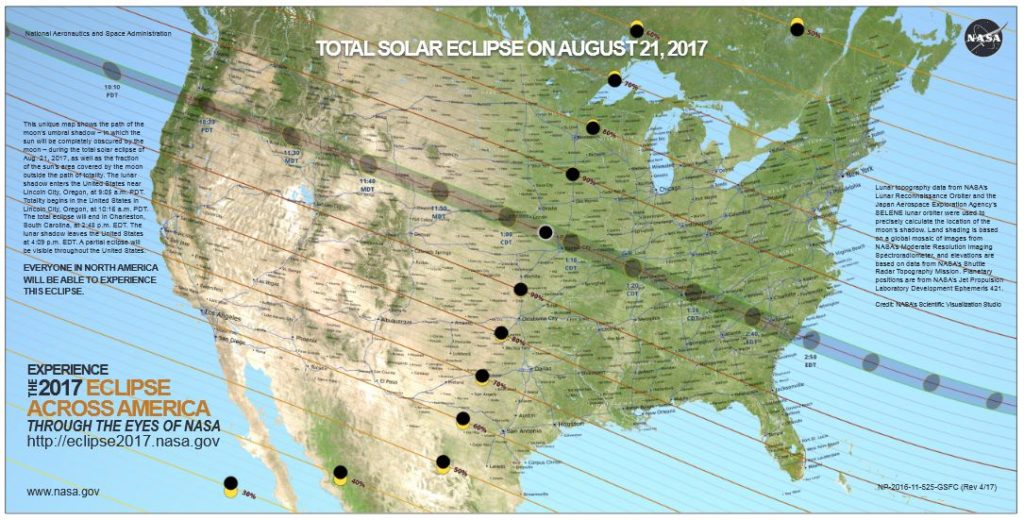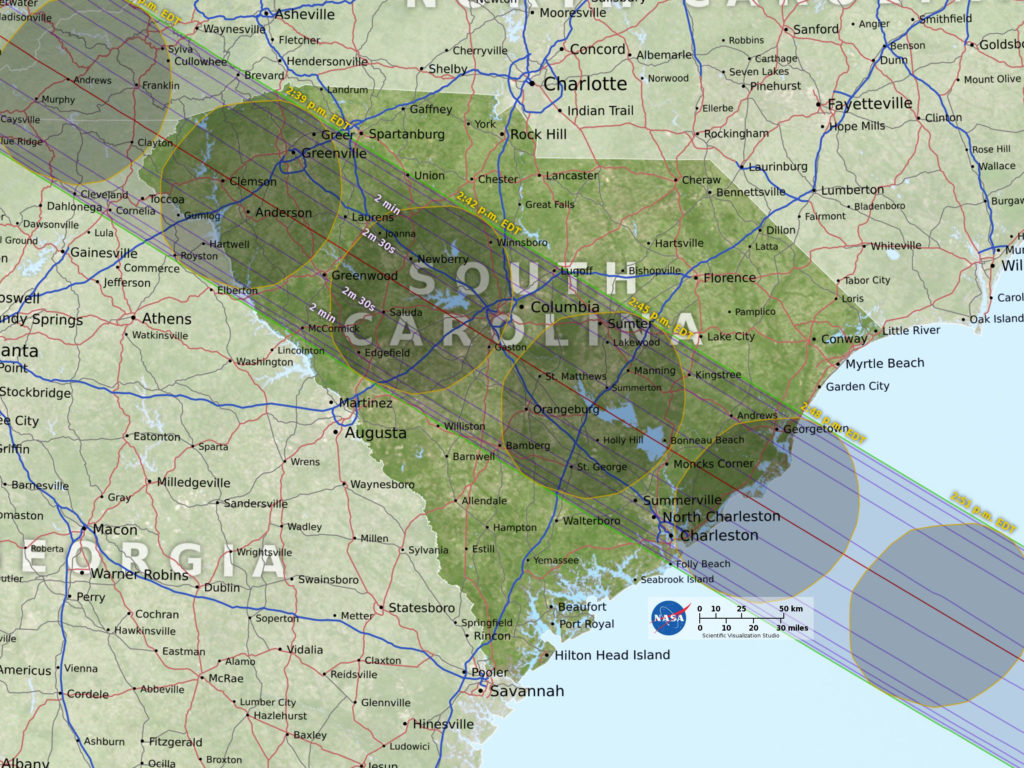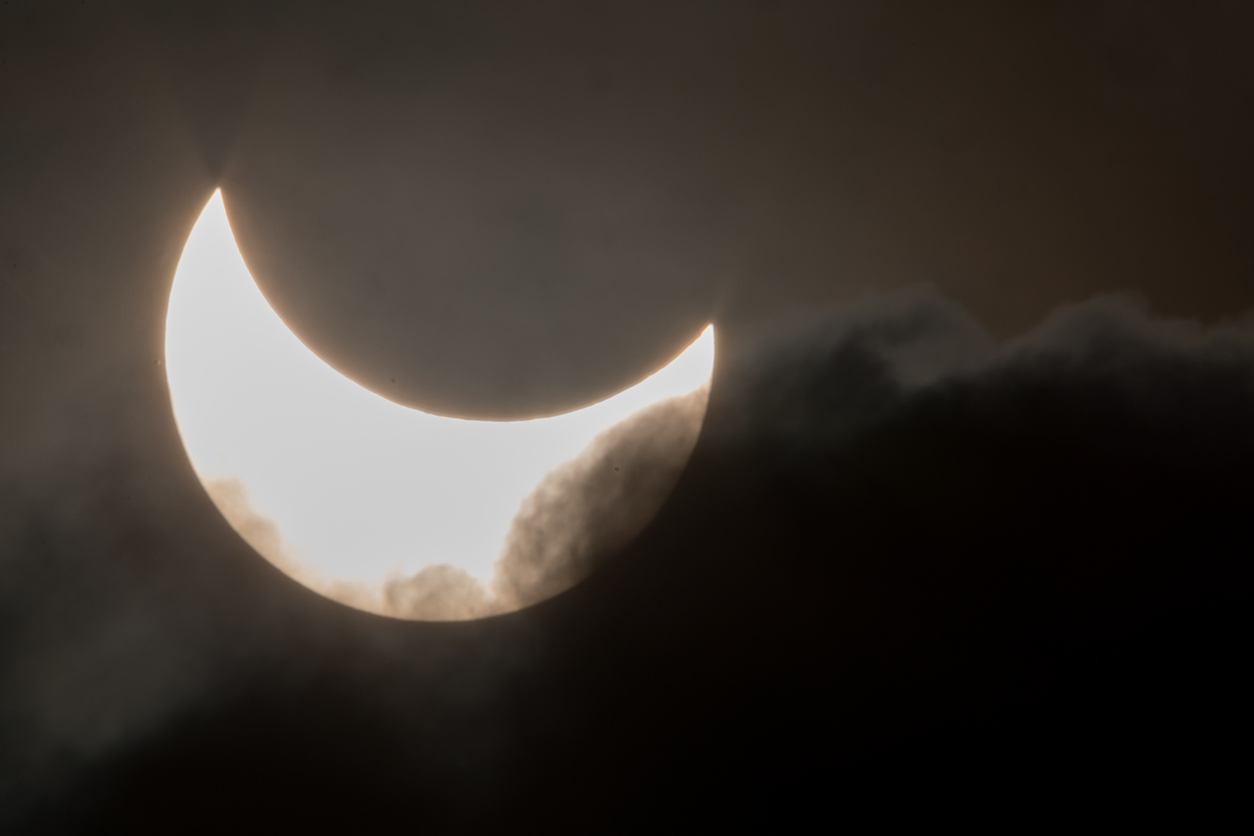TWO WEEKS AWAY …
The “Great American Eclipse” is just two weeks away … which means it’s probably time to start preparing for this rare heavenly event.
A total solar eclipse occurs when the disk of the moon – which orbits roughly 239,000 miles away from earth – momentarily obscures the disk of the sun, which is roughly 93 million miles away from the earth.
The moon casts a long shadow over the face of the earth, making daylight turn to twilight within the “path of totality” – or the path along which the sun is completely obscured.
Solar eclipses happen three or four times a year, but total eclipses happen just once every eighteen months.
On August 21, a total solar eclipse is projected to cut a broad swath all across the continental United States – beginning on the west coast in Oregon and moving across Idaho, Wyoming, Nebraska, Kansas, Missouri, Illinois, Kentucky, Tennessee, North Carolina, Georgia and South Carolina.
Here’s the projected path of the eclipse across our country …
(Click to view)

(Via: NASA)
And here’s its projected path across our home state of South Carolina …
(Click to view)

(Via: NASA)
What’s it going to look like?
In addition to the eery twilight effect they cast over the earth, eclipses allow a rare glimpse at the sun’s outer atmosphere, the corona – which is actually hotter than the surface of the sun.
The corona is expected to provide a dazzling, multi-colored light display for those within the path of totality – assuming they have the proper protective eyewear with which to observe it.
Which reminds us …
Even though the disk of the sun will be temporarily covered by the moon during the eclipse, you still can’t stare directly at it.
You need the right protective glasses, such as those manufactured by Rainbow Symphony, American Paper Optics, Thousand Oaks Optical or TSE 17.
Ordinary sunglasses won’t cut it …
For South Carolinians, the eclipse will begin at around 1:00 pm. EDT on August 21 with the path of totality crossing the state between 2:36 p.m. and 2:49 p.m. In Columbia, S.C. totality will begin at 2:41 p.m. and last for around three minutes. The eclipse will continue until around 4:00 p.m.
Courtesy of the National Aeronautics and Space Administration (NASA), here’s an interactive map showing exactly how the eclipse will impact specific locations across the country.
***
WANNA SOUND OFF?
Got something you’d like to say in response to one of our stories? In addition to our always lively comments section (below), please feel free to submit your own guest column or letter to the editor via-email HERE or via our tip-line HERE …
Banner via iStock
